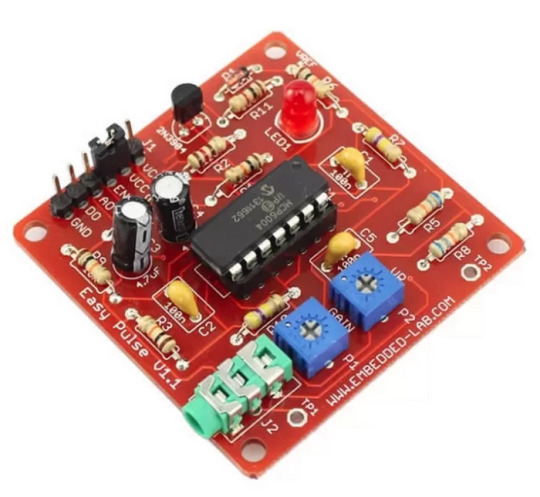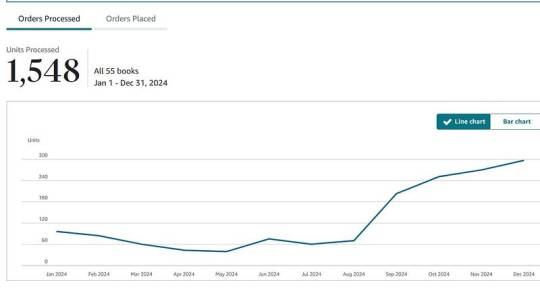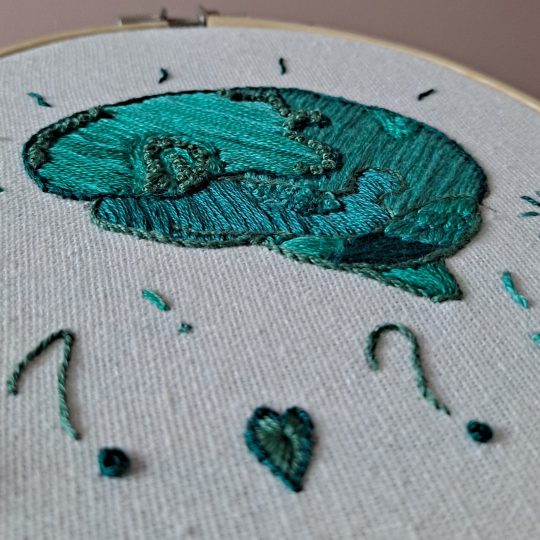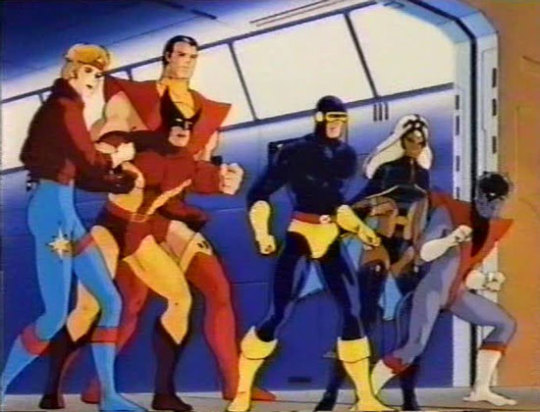#partner seller program
Explore tagged Tumblr posts
Text
EXPLORING THE 5 COOL PARTNER SELLER ELECTRONICS PRODUCTS-Part2
Easy Pulse Sensor by Embedded Lab

The incredible Easy Pulse Sensor — the ultimate DIY pulse sensor for detecting the cardiovascular pulse wave from a fingertip! Whether you’re a hobbyist or an educator, this innovative sensor is the perfect tool to illustrate the principle of photoplethysmography (PPG) — a non-invasive optical technique for obtaining vital information about the cardiovascular system from the surface of the skin.
With its infrared light source and precision photodetector, Easy Pulse provides accurate and reliable measurements of the small changes in transmitted light intensity caused by changes in blood volume within the tissue. The resulting signal is filtered and amplified to produce a clean and accurate PPG waveform from which the instantaneous heart rate can be derived.
What’s more, the Easy Pulse also provides a digital pulse output that is synchronized to the heartbeat, making it an invaluable tool for a wide range of applications. Whether you’re a student, researcher, or medical professional, Easy Pulse is the perfect solution for monitoring heart rate and other vital signs in a non-invasive, user-friendly way.
Features
Operates at +5V power supply
Two-stage Filtering and Amplification using MCP6004 Op-Amp
Rail-to-rail output voltage swing
Analog PPG and digital pulse output
Potentiometer based gain control
Click here to see more about the Easy Pulse Sensor.
The 16*32 RGB LED by Embedded Lab

What’s more, the brightness sensor can be adjusted automatically, with 16 levels of adjustable brightness to choose from, ensuring optimal viewing in any lighting conditions. And with wide viewing angles of 160° horizontally and 160° vertically, this LED matrix is perfect for both indoor and outdoor use.
The LED matrix also features 2 IDC connectors (DATA_IN, DATA_OUT) on the back and drives the display with a 1:8 scan rate, making it easy to cascade multiple panels and create a big screen display that’s sure to impress.
Whether you’re looking to create stunning digital signage, eye-catching displays, or engaging interactive installations, the 16x32 RGB LED Matrix Panel is the perfect tool for the job.
Noted: It doesn’t include the Driver Shield, if you want to buy the Driver Shield, click here.
Features & Specifications
Multi-purpose use, can be used indoors and outdoors
Wide viewing angle, wider range, attracting more audience
512 individual RGB LEDs, full-color display, adjustable brightness
High refresh, high gray
Size: 192mm x 96mm
Pixel pitch:6mm
Resolution ratio: 32 x 16 dots
Pixel Type: 1R1G1B
Optimum viewing distance: 6–47m
Visual horizontal angle:≥160°
Visual vertical angle≥160°
Display card: DVI
Driving mode: 1/8 scan
Refresh rate:≥800Hz
Control mode: Synchronous control
Service Life: 75000~100000 hours
Click here to see more about the 16*32 RGB LED Panel.
Final Words
We hope you’ve enjoyed learning about these 5 cool electronics products from Partner Seller that are sure to enhance your DIY projects and technical endeavors. From the Easy Pulse Sensor for heart rate monitoring to the versatile 16x32 RGB LED Matrix Panel for eye-catching displays, these products offer innovative features that are perfect for hobbyists, educators, and professionals alike. And if you’re a maker who wants to build your own products and put them on the shelf for commercial purposes, Elecrow offers professional support to help you get there. Join Elecrow’s Partner Seller Program and become a Partner Seller to promote your electronic products to the maker community! You can benefit a lot!
2 notes
·
View notes
Text
Gamebiy.com: The Address of Security and Trust
In today's expanding world of the internet, online security is more important than ever. At Gamebiy.com, we are committed to continuously striving to provide our customers with the highest level of security and protection.
By partnering with trusted technology leaders like Microsoft, Gamebiy.com has embraced advanced technologies to ensure the security of our website. Being a partner with Microsoft not only proves the reliability and quality of our business but also grants us access to the latest security updates to better serve our customers.
Additionally, we have partnered with leading security companies like NordVPN and Avast to ensure the privacy and online security of our customers. Through NordVPN's virtual private networks (VPNs), we enable our users to remain anonymous on the internet and protect their personal information. Collaboration with security software like Avast ensures that our website and users' computers are protected against the latest malicious threats.
Another essential aspect that reflects Gamebiy.com's commitment to security is the SSL (Secure Socket Layer) certificate. By encrypting all data transmissions on our site, we ensure the security of our customers' personal and financial information. Furthermore, we pride ourselves on PCI (Payment Card Industry) compliance, meaning that our customers' payment transactions are securely processed.
At Gamebiy.com, we pledge to uphold the security and privacy of our customers to the highest standard. Whether shopping online or visiting our site, we continuously strive to ensure our customers' peace of mind. For more information about our security measures, visit our website and feel free to reach out to us with any questions.
Gamebiy LTD.
https:gamebiy.com
#digital art#marketing#ecommerce#programming#sales#microsoft#office#windows 11#windows 10#partner#content seller
1 note
·
View note
Text
A Queer Indie Author’s Experience of 2024
Looking back on my top stories, sales stats, and best experiences of the year past, and looking to the year ahead!

Hello hello!
I’ve just been in the process of attending to my yearly tradition, ordinarily attended to in the last days of December and the first of January — I sit down with my new year’s calendar, and I write down all the vital dates and pieces of information.
On the current calendar in front of me — a charming Peter Rabbit family planner with a little attached whiteboard, as I wasn’t able to get the Discworld calendar this year — I’ve transferred over the birthdays of all my friends and loved ones, written down some of the main conventions of 2025 I’m planning to attend like TeratoCon, and other already established professional and social plans, as well as deadlines for different submissions.
As I’m looking ahead, I thought it would be worth looking back a little bit as well, for a nice bit of contrast!
Statistics for 2024:
Total Books Sold Through KDP (Amazon) in 2024: 1,548
1,265 of those units were eBooks and 283 were print books — my top performer was my first novel, Heart of Stone, which sold 637 units (396 eBooks, 241 paperbacks), and after that was Touch-Starved, which sold 209 total units, then Powder and Feathers, at 82 total units.
Approximated royalties are at $2,288.42.
Total Books Sold Through Draft2Digital in 2024: 13,529
Draft2Digital is the company through which I publish to several platforms, particularly Kobo and Kobo+, Apple Books, Barnes & Noble, Everand, Smashwords, and then library programs like BorrowBox, Hoopla, CloudLibrary, etc.
The sales are so incredibly high because it was the Smashwords End of Year sale, and all of my 99c shorts were discounted to free for most of December, so 12,548 sales were in December, and I only had 981 sales for the rest of the year.
I unfortunately have absolutely no idea how to look at the breakdown between eBooks and paperbacks for D2D, but my top sellers were Touch-Starved, at 464 units sold, Sweet On, at 400 units sold, and Hitting the Books, at 369 units sold.
Approximated royalties are at $1,117.56, with $354.52 of those royalties being in the last month. While obviously ten thousand books were free books sold, my advertisements for the free books and the freebies themselves drove a lot of traffic to my other works like Heart of Stone or Strange Liberty, etc.
Total Royalties from Medium in 2024: $1073.92
Medium pays out royalties based on views of subscribers and how much time subscribers spend reading each work. I normally tock up my top story for each month on Medium, but Medium has helpfully taken away the option to do that for months January through July, thinking that only the last six months are useful in the stats block for the Partner Program rather than the last 12.
Nonetheless, for the months I can see:
August’s Total Earnings on Medium: $64.39 September’s Total Earnings on Medium: $47.33 October’s Total Earnings on Medium: $56.25 November’s Total Earnings on Medium: $57.27 December’s Total Earnings on Medium: $57.08
August 2024’s Top Performer was Yentl: A Trans Man Studying Talmud is Distracted by Gay Thoughts. It earned $3.80 that month, and its lifetime earnings, having been published in July 2023, stand at $163.36. It was also September 2024’s Top Performer, earning $3.79. It was also November 2024’s Top Performer, earning $3.71.
August 2024’s Top Fiction Performer was The Devil’s Mark, which earned $2.76, having been published that month, and has managed $3.12 lifetime earnings since publication.
September 2024’s Top Fiction Performer was Street Trade, which earned $1.15, and has managed $1.81 lifetime earnings since publication.
October 2024’s Top Performer was Passing Privilege: Through My Eyes, as a Trans Man Who Passes, earning $11.64 that month, and its lifetime earnings, having been published in June 2023, stand $138.04.
October 2024’s Top Fiction Performer was Bred & Betting, which earned $2.09 that month, and has managed $3.10 lifetime earnings since publication.
November 2024’s Top Fiction Performer was Divine Service, which earned $2.52 that month, and its lifetime earnings, having released on Medium in May 2024, stand at $32.99. It was also December 2024’s Top Fiction Performer, earning $2.21.
December 2024’s Top Performer was A Transphobe Ruined His Own Night Because I Was Existing Next to Him, which earned $13.42 and was actually a new piece, so that’s its lifetime earnings.
Total Income from Patreon in 2024: $16,502.38
Of course, Patreon is always the bulk of my income, and I’m very grateful for my Patreon subscribers!
On my Patreon, I publish all of my short stories and essays, barring a handful that due to Patreon’s guidelines can’t be cross-posted there, and the new benefit I’m going to be offering my patrons is going to be giving them voucher codes so they can always buy eBook versions of all my works on Smashwords as an additional benefit.
I try not to look at my general new subscriber and unsubscription rate on Patreon each month, but my Active Subscribers currently stand at 420 (noice), with 104 new subscribers and having had 102 cancelled subscribers in the past year.
People regularly unsubscribe on Patreon and come back later when they can afford it, or go between Medium and Patreon, depending on what works best for their income at the moment.
What I Did in 2024
This year has been really good for me, and I’ve been absolutely delighted with the results, but the past few months particularly have been especially good, and I’m really excited with some decisions I’ve made and what they’re gonna look like for me in 2025.
Firstly, in February I accompanied Dalton Harrison, author of The Boy Behind The Wall, and Kirsty from Bi+ Leeds to HMP Askham Grange to run a Q&A and read from some of our pieces in Transmuted to the prisoners there.
It was such a privilege to be able to talk to some of the prisoners incarcerated there, especially other queer and trans people, and to advocate for prisoners’ queer identities to guards and staff in a way that prisoners often don’t feel able to approach in the same way for themselves, but mostly just to spread a little joy and talk about creativity and art to the prisoners in place there.
In April, I delivered a talk with Romancing the Gothic about Crimson Peak as a modern Gothic Romance, and I of course ran my usual Monstrous May prompt event, although I don’t think I did enough promotion for it in 2024 and I don’t think my prompts were necessarily that enticing. I’m hoping to drum up more excitement and interest in 2025.
I went to WorldCon in August, and I had an excellent time, it felt really fulfilling as a creative professional, I loved being on several panels and also being able to moderate a panel, and I’m very excited to further cultivate my skills in the next year or two in interviewing and moderation for Q&As and panels alike!
I didn’t unfortunately get to any other conventions in 2024 because WorldCon was very expensive between con tickets, travel up to Glasgow, and the AirBnB, but more cons is absolutely the goal.
I also got involved in a few other projects that are going to be published in 2025 — I contributed a short story to Dudes Rock: A Celebration of Queer Masculinity in Speculative Fiction, edited by Jay Kang Romanus and published by The Circus Collective, and the anthology is currently open for preorder, due for release on January 10th!
I’ve also contributed to SLAKE HOUSE, an erotic horror Choose-Your-Own-Ending anthology presented by Noah’s Ark and Radha Kai Zan that’s due for release in the next few months, and I’m very excited for that as well, it was such a cool project to be a part of, and I was so delighted to work along so many splendid and deliciously fucked-up creators, both other authors and amazing visual artists!
I made some changes to my social media presence — most notably swapping the bulk of my activity from the dying-a-swift-death X, née Twitter, to BlueSky, which has now added threading — enabling me to write my first ThreadFic on the platform — and publishing more actively to Reddit, especially in the fantasy, romance, and queer subs, as well as making a Threads account.
And finally, the biggest change I’ve made in 2024, I went through my back catalogue of longer shorts, those that were in the 5k to 30k range, and made each of them available as 99c shorts, with new eBooks published in the 5–10k range to be published as 99c shorts, and ones closer to the 20k range or above to be priced at $2.99, apart from my serials that get re-edited and published as extended novels.
For a long time, I was quite reticent to publish shorts in this way, convincing myself that I absolutely had to publish shorts in big collections or otherwise I was somehow cheating the reader by giving them such a short piece, but I’m so glad I managed to shake off that anxiety.
The response to all these 99c shorts has been overwhelmingly and absurdly positive, and I’ve reached a huge swathe of new readers even before the Smashwords sale where I sold off 10k of these shorts for free. Quite a lot of readers have been really excited at the short story, novelette, and novella formats for a lot of these pieces, especially because they’re so varied in their subject matter, genre, and characters, and obviously like…
Each of these books individually can work up its own popularity and readers who have affection for it, each of them individually being recommended on their own strengths, but having so many shorts available, people often recommend a handful in the same breath, especially those that play with similar topics or themes.
Going from having a back catalogue of seven or so eBooks and paperbacks to 50 eBooks and 20 paperbacks makes a big difference, and it’s going to be great to be able to pick out paperbacks to bring along to sell at conventions and so on that exactly match the brief or the theme!
As each of these shorts and novelettes gain reviews, I’m excited for them to gain more of an audience over time as readers find them as their favourites, similar to the response Heart of Stone has received over time, and that I hope Powder and Feathers and other long novels in future to receive, such as the next expected release, An Uncommon Betrothal.
I’ve come on leaps and bounds with my own ability to design book covers, working with a pared back vintage style that incorporates a lot of public domain etchings, sketches, and block prints, the sort I grew up seeing in adventure novels and so on, and also in editing and formatting my books for paperback on KDP!
My Goals for 2025
Most of what I want to achieve in 2025 is more of the same.
I definitely feel that because I was working on a lot of longer pieces this year, and then because I was working on making eBooks and paperback versions of various pieces available, that I didn’t publish as many fiction pieces overall, but I’m very proud of what I have published!
I want to attend more conventions, as I’ve said, and involve myself in more literary and author-run events where I can, as well as maybe selling books and merch at pride events.
I haven’t focused that much on merchandise this year, but now that my printer is up and running, I’m excited to design new badges in a few months, as well as maybe make some bookmarks, postcards, stickers, and similar. Depending on how my income looks in the next few months and how significant a difference my back catalogue makes, I think I’d also like to have some business cards printed.
I’ve definitely made more money business-wise this last year than I ever have before, and I’m keen to keep those growths doing, but we’re hoping to get a cat this year as well as do some home repairs, so I want to be modest about how I’m reinvesting that new income as I keep it building up.
I want to be more creative about how I’m advertising to new readers and meeting new people — I actually put up some posters around Leeds last month to advertise the Smash sale, and I definitely think I want to get into the habit of regularly putting up posters advertising my work in queer spaces around Yorkshire, both around Bradford and Leeds, but also if I’m going out in York, or even if I’m going farther afield to Manchester or Bristol or London.
And my biggest goal I think is that when I finish An Uncommon Betrothal, I want to do an official in-person launch for the paperback and do an event where I’m reading from it, selling copies, and signing them as well!
That would most likely be in Leeds, and I just think it would be a really fun event if I can do it, and would drum up a lot of support and sales both online and in paperback.
Thank you so much for all your support, and wishing everyone a happy new year!
20 notes
·
View notes
Text
Class 1A as Pro Heroes Headcanons
Characters: All class 1A male students (After time skip)
Tags: characters headcanons, manga spoilers, some may be ooc?, not proofread.
A/N: Heya! It's been a while since I posted, many things happened in my life. I traveled to Japan, got a promotion at work, celebrated my birthday... but I'm back! This is the first post non AOT related hehe, this is a multifandom account but was usually populated with AOT stuff and while I plan on uploading some more AOT stuff today it's turn for MHA. Hope you enjoy, thanks for reading!


Izuku Midoriya
Is part of the team of judges who set the current top hero’s billboard.
Has a weekly column in one of Japan’s most important newspaper where he analyzes heroe’s techniques and moves. Most heroes wait expectantly each week for his column to be released.
Attends many charity events and is the top #1 fundraiser for children causes.
Has been the special guest for at least 30 shows, he’s still a nervous mess in all of them.
Is the only person who has a major fanbase without being an active top hero.
Received permission to write a biography for All Might.
Shoto Todoroki
Is top #3 in the charts.
Became ambassor for UNICEF.
Is also an active member of the “Big brother, Big sister” program.
Took over Endeavor’s agency and turned it into his.
Is one of the most requested heroes for fundraisers or charity events.
Has a lot of modeling requests and has been the face of at least 15 brands since he became a top hero.
Katsuki Bakugo
Is top #2 in the charts but constantly switches place with Shoto. (The top #1 Hero is Mirio)
Was the first one from class 1A to make it to the top 5 heroes.
His merchandise is the best seller among all current heroes, anything that has his face in it sells in less than 1 hour.
Just like Shoto, received many modeling requests but refused almost all of them.
Has the largest fandom in Japan, is forced by his PR team to attend fan meetings.
Has a scrapbook with all of Izuku’s columns from the newspaper, if he’s mentioned in them he highlights that part and makes notes based on it.
Yuga Aoyama
Isn’t part of the top 30 heroes but works diligently in his community.
His flashy style never left but he’s a bit more mature about it now.
Is co-writing a book with Izuku about the challenges of being born without a quirk in a quirk-ruled world.
Attends many events related to kids without quirks and is genuinely happy to be there.
Tenya Iida
Continued his family’s legacy and took over his older brother agency.
Is top #7 in the charts, for some reason his fanbase consists of salary men and housewives.
Attends more international events than his former classmates.
Held the Olympic torch during its tour in Japan.
Mashirao Ojiro
Is top #18 in the charts.
Works part time as a martial arts trainer, his trainees made it to the Olympics and won silver.
His agency specializes in taijutsu related quirks and is very popular.
Has a nationwide gym franchise with his hero name.
Denki Kaminari
Is top #9 in the charts.
He supplies his agency electricity as well as Jiro’s agency (it’s canon their agencies are next to each other)
His fanbase consists mostly of high school students, he’s very popular with the teens.
Was the first one from class 1A to get official merchandise as a pro hero.
Eijiro Kirishima
Is top #4 in the charts.
Is the face of a very famous protein shake brand.
Was the first from class 1A to appear in a magazine cover as headliner (It was for men’s health magazine).
Usually partners with Ojiro’s and tetsutetsu’s agencies for charity events.
Koji Koda
Isn’t part of the top 30 heroes.
His agency is located in a slightly rural town, this is due to his quirk having way more range when surrounded with wildlife than in the city.
Founded more than 30 animal shelters in his first 5 years as pro hero, he received an award because of this.
Most of his fanbase is elementary school kids and middle school girls.
Rikido Sato
Is top #20 in the charts.
Co-owns a bakery with Momo Yaoyorozu.
Wrote a recipes book and it became best seller in Japan for 4 weeks in a row.
His fanbase consists mostly of housewives.
Has his own line of desserts and chocolates, they’re the best sellers during holidays.
Mezo Shoji
Is top #17 in the charts.
Updated his hero suit and no longer hides his face and scars.
His action figure is one of the best sellers.
Participates with Shoto in a lot of “big brother, big sister” events.
Hanta Sero
Is top #16 in the charts.
His fanbase is the most variated one, has kids, students, professionals and even university students as fans.
Just like Shoji, his action figure is one of the best sellers.
His agency is in the center of Tokyo, has to take advantage of the tall buildings and structures.
His most sold merchandise is a tape dispenser, it’s almost always out of stock.
Fumikage Tokoyami
Is top #12 in the charts.
He and Dark shadow have different fanbases.
Whenever he attends a social event paparazzi turn off their flashes so Dark shadow can be in the picture too.
While Tokoyami’s fanbase consists more of teenagers, Dark shadow’s fanbase is elementary school students and little kids.
Minoru Mineta
Isn’t part of the top 30 heroes.
Changed his creep attitude and apologized with all the girls he knew during that time.
Is the ambassor for an organization dedicated to eradicate harassment.
For some reason most of his collabs with brands have to do something with food.
A well-known tea shop has a bobba tea named after him.
#mha headcanons#bnha headcanons#shoto headcanons#deku headcanons#bakugo headcanons#kirishima headcanon#class 1a#my hero academia#my hero academia headcanons
29 notes
·
View notes
Text
Meanwhile, in Brickland
Cory Doctorow:
Analog companies can raise their prices, or worsen next year's model of their products. *Digital* businesses can *travel back in time* and raise the price of something you already own, but need to pay a "subscription" fee for. They can reach back in time and remove features you've already paid for. They can even go back in time and take away things you already own. The omniflexible, omnipresent digital tether between a device and its manufacturer creates *so many* urges that they can't resist:
Are you one of 4,000,000 people who built "smart home" products from Wink into your walls, ceiling and foundation slab at any time since they started shipping in 2014? Surprise! Now you have to pay a "subscription" for all of those gadgets or they'll *brick your fucking house*:
Did you buy a "Mellow Sous Vide" gadget? Surprise, it now costs $48/year to use that gadget!
Did you buy an Exogen ultrasound device to stimulate bone growth after a fracture? Surprise, it bricks itself after you've used it 343 times! Enjoy your e-waste, Hopalong!
Did you *buy a Ferrari performance sports-car*? Surprise, it bricks itself if it detects "tampering" - and the only way to un-brick it is to connect it to the internet, so you'd better hope it doesn't brick itself deep in an underground parking garage. Oops!
Did you buy a Peloton treadmill? Surprise, your $3,000 "smart" treadmill no longer works in standalone mode - unless you pay $480/year, that treadmill is now a clothes-drying rack:
Did you buy an Epson printer? Surprise! It will brick itself after you print a certain number of pages, *for your own good*, because otherwise its ink-sponges might leak:
Did you get - no, wait for it - *did you get a neural implant?* Surprise. The company's new owners don't want to continue supporting your implant, and they won't let anyone else do so either. So now, *part of your brain* has been bricked:
This is like a lifetime money-back guarantee - *for companies*. Any company that experience's seller's remorse can cancel or alter the transaction, retroactively. It's as if Darth Vader opened an MBA program whose only lesson was *I am altering the deal. Pray I don't alter it further":
Darth Vader has the Force. Corporate enshittifiers have something even more powerful: IP law. Companies can cleverly arrange overlapping layers of IP - anticircumvention, trademark, patent, trade secrecy, terms of service, cybersecurity law, contracts - to criminalize otherwise legal activity, like reverse-engineering, jailbreaking, creating alternative clients or third-party parts:
That means that companies know that they can enshittify to their heart's content without fearing a competitor's disenshittification products. Raise the price of ink all you want, because you've figured out how to criminalize generic ink cartridges:
That's a lesson Spotify took to heart. Aaaallll the way back in 2022, Spotify started selling $90 "Car Thing" tablets - little car-vent-mounted gadgets that made it slightly easier to connect your car stereo to your Spotify account. Now that a suitable interval has gone by, Spotify has decided to remotely brick every one of these solid-state devices, no later than December of 2024:
Now, this may seem like a loss to all those Car Thing owners, who are out $90. But consider this: our descendants are *gaining* thousands of pieces of immortal, infinitely toxic e-waste.
So there's that.
Then there's this: Jason Koebler just published a breakdown of a leaked sSamsung repair contract on 404 Media, revealing how Samsung requires its "independent" repair partners to trick you, abuse you, spy on you, and literally destroy your phone:
First: every time you bring a phone to an independent Samsung repair shop, the company has 24 hours to notify Samsung, providing your name, email, phone number, address, the IMEI of your phone, your warranty status and complaint.
Then, the technician is required to inspect your device for any evidence that you have had it serviced by unauthorized technicians or fixed with third-party replacement parts. If they believe you have failed to act in accord with Samsung's shareholders' interests, the technician is required to *immediately destroy your phone* and notify Samsung.
(This is radioactively illegal, and has been since 1975, when Congress passed the Magnuson-Moss Warranty Act, which protects your right to use third-party parts:)
Why does Samsung do this? They can't help themselves. It's in their nature.
32 notes
·
View notes
Text
Thinking about the history of bulk horror production: Roger Corman would absolutely have kicked the tires on AI-powered filmmaking to see if he could bring a movie in cheaper and faster that way, but he had his fair share of bad ideas, so that's hardly an endorsement.
To do him justice, though, he would've had a lot more questions about the actual price structure than most people who are excited about generative AI. A lot of these things are being offered at a loss because the sellers are waiting on a nebulous Something to happen that will make genAI worth its real cost, at which point they'll jack up the price. Corman would want to know what that price is gonna be right now.
#leave immediately and wait in the car#horror#horror movies#ai#generative ai#blumhouse#meta#to be clear i think this is not going to work and it'll be too expensive for what it does do#but i'm not really *mad* that they're looking at it#blumhouse is just new world pictures#it's fine
6 notes
·
View notes
Text
Sam Delgado at Vox:
Over the last century, people have started demanding more from the businesses where they shop. Whether it be a pair of jeans or the food on their plates, consumers want to know that what they’re buying isn’t just good quality but also ethically and sustainably made. In the early 20th century, groups like the National Consumers League and the now-defunct League of Women Shoppers organized consumers to take advantage of their power in an effort to improve labor protections and the rights of workers in the United States. Today, ethically minded consumers are also motivated by climate change and animal rights, as the consequences of our overconsumption have become clearer.
Fast-forward 90 years and the global marketplace has become exponentially more complex. Globalization has remade how and where corporations make products. If it was difficult for activists at the turn of the 20th century to identify ethically made products, the challenge to the modern consumer is even greater. You might think regulations or legislation could compel companies to produce more ethically made goods. But ultimately, no one government is responsible for a supply chain that crosses borders and oceans. In a globalized economy, nobody is in charge. So “corporate social responsibility” — or the idea that companies can hold themselves accountable — emerged, responding to this consumer demand. In practice, corporate social responsibility can look like companies donating to charities every year, committing to net-zero emissions by a certain date, or focusing on labor practices. To prove they’re doing this work, companies will partner with nonprofits or hire third-party consultants to audit their supply chains, and then measure and report their progress in annual reports, press releases, and on their websites.
[...] Corporate social responsibility went mainstream during the new wave of globalization and the growth of multinational corporations that followed in the second half of the 20th century. As these businesses expanded their reach and production speed, they sought to cut their costs by contracting cheaper labor in other countries with weak worker protections. This idea of outsourcing wasn’t necessarily new. Businesses in the US already had a history of moving to Southern states where they knew corporate regulation was more relaxed and labor would be less expensive, made possible by the racist legacy of slavery and Jim Crow laws. A century later, new technology — particularly the internet — made it even easier for companies to scale up and outsource their operations. By moving overseas, companies could obscure unsafe working conditions from American consumers, who might’ve known very little about how their products were being made.
But public awareness of the costs of globalization started to grow in the early 1990s, thanks to stories and reports from human rights organizations and newsrooms that laid out the abysmal working conditions and standards of major brands, often in their factories overseas. Nike, the world’s biggest shoe seller, faced backlash after multiple stories came out about grueling conditions and the use of child labor in its contracted factories, sparking boycotts and protests against Nike from consumers and activists alike. Businesses saw how consumers could rise against them if they weren’t careful about what went on in their supply chains, leading to more companies developing their own voluntary corporate social responsibility initiatives to address their environmental and social impacts.
Today, corporate social responsibility programs are widespread. They often refer to commitments a company makes toward a particular area of social impact, like diversity, ethical sourcing, or the environment. It usually looks like this: A company will set goals around one or more of these areas, assess its progress, and then publish its results. To legitimize these programs, companies will hire social auditing firms, seek certifications from multi-stakeholder initiatives (MSIs) like the Fair Labor Association or Fair Trade to show they meet certain standards, or develop codes of conduct around labor and human rights. Such programs matter to consumers, and they’re willing to pay more for sustainably made products — and hey, if something is good for both the world and for business, what’s the harm?
Corporate social responsibility in practice
Corporate social responsibility is everywhere today, driven by consumer demand and a growing socially conscious workforce. One 2023 study found that over 80 percent of companies are increasing their budgets for sustainability initiatives. Chief sustainability officers are now common, and more companies are disclosing the exact factories their products are made in and the reported conditions. But it’s hard to know how honest or effective these programs really are at protecting labor and the environment. Part of the issue is they’re voluntary. While companies must comply with local, federal, and international laws, that’s the end of their legal obligations. Beyond that, there’s no requirement for corporate social responsibility programs to show their methodology or metrics for calculating their progress and no obligation to release all results from a social audit. A company can change its corporate social responsibility programs at any point, or drop them entirely. [...]
The rise of worker-driven social responsibility
Around the same time that corporate social responsibility was taking off in the 1990s, a group of farmworkers in a rural Florida town called Immokalee had a meeting that would challenge the status quo, from the bottom of the supply chain all the way to the top. The farmworkers were Mexican, Guatemalan, and Haitian migrants, and they harvested buckets of tomatoes in grueling conditions for as long as 12 hours a day, receiving poverty wages for providing crucial produce to US grocery stores and restaurants. The fields they worked in were rife with verbal and physical abuse, sexual harassment, wage theft, and, in the worst cases, involuntary servitude. Tired of the exploitation they encountered in the fields, the Immokalee farmworkers discussed how they could really change the way things were done. This 1993 meeting marked the beginning of the Coalition of Immokalee Workers (CIW) and, later on, the first ever worker-driven social responsibility program. Lucas Benitez, one of the founders of the CIW, told me that, at first, the farmworkers thought their employers, the tomato growers, had all the power. “Then we came to see and recognize what was essentially an invisible hand that was putting that pressure further and further down on the supply chain,” Benitez said via an interpreter. “That started at the top, because it’s those retailers that fundamentally dictate to growers the conditions under which that food is being produced. And so that’s really where the power lay, and so that’s where we turned.” In 2001, the CIW set its sights on Taco Bell and called for a boycott over the reportedly abysmal conditions in its tomato supply chain. Four years later, Taco Bell signed an agreement that included vital demands from the CIW: Taco Bell would pay a premium for its tomatoes that would go directly to workers’ paychecks, it would only buy from growers who met the code of conduct that protected workers, and this would be monitored and enforced by an investigative body with help from the CIW. It was all backed by a legally binding contract. A binding contract is crucial to worker-driven social responsibility, a sharp contrast to those toothless corporate social responsibility initiatives.
Vox takes a look at the worker-driven social responsibility trend.
#Economy#Labor#Diversity#Corporate Social Responsibility#Worker Driven Social Responsibility#Workers' Rights
11 notes
·
View notes
Text
NCIS: Origins this week took steps towards establishing why the story that narrator Gibbs is telling us about “her” aka Special Agent Lala Dominguez resonates with him to this day.
Along the way, we briefly laid eyes on a young version of a character who would appear in the NCIS mothership’s very first episode, and pop up now and again to this day.
As Gibbs (Mark Harmon) shared in this episode’s opening narration, Lala (played by Mariel Molino) would at some future point confide in him that she felt trapped in a “box,” and one that seems to be growing smaller. Things such as Franks (Kyle Schmid) suggesting she is a “workplace distraction” for Gibbs (Austin Stowell) clearly weigh on her. Lala, though, is in no rush to let “probie” know what she is feeling. Rather, she’s still irked about last week’s case, during which Gibbs drew his gun on two nobodies who were giving her a hard time.
Lala heads out with Vera (Diany Rodriguez) and Mary Jo (Tyla Abercrombie) for a “girls night,” to celebrate the former getting a green light for her profiling program. When Lala gets paged regarding NIS work, she heads to her car — only to have the guy she was kinda dancing with follow her and climb into the passenger seat uninvited. Lala tells the guy to get out, noting that she has work to do (and a boyfriend). But then a switch “flips” for her, and she suddenly pulls the stranger in for a kiss (and more?).
Lala is not herself upon reporting to the crime scene with smeared lipstick, and is notably “off” that whole night and day after. (No, Gibbs, offering a bowl of cereal won’t cure what ails her.) But they proceed to investigate the murder, which was made to look like suicide, of a Navy wonk who had access to military secrets.
Along the way, Franks asks SAC Wheeler (Patrick Fischler) to lean on his FBI contact for information the bureau has on the likely buyer. When Franks and Wheeler meet up with the FBI source at a Mexican restaurant well-populated by LEOs, the G-man waves over his young colleague “Tobias” — as in Fornell! The young version of Joe Spano’s NCIS character, whom Gibbs will first meet in the NCIS series premiere, is played by Lucas Dixon, whose previous TV credits include episodes of The Tick and Blindspot.
“In 1991, Agent Fornell is an affable underling who’s still finding his footing at the Bureau,” reads the official character description obtained by TVLine.

When the opportunity presents itself for Gibbs to pose as the man buying the stolen Navy intel, Lala tags along to coach “probie” through his first undercover op. And boy, does nervous Gibbs need the assist. With a glam Lala posing as Gibbs’ date at an exclusive bar, the two watch for the seller. There are sudden embraces (to dodge Gibbs’ dentist!) and the cupping of faces (to see the cover). Soon enough, Gibbs is invited to meet with the seller in a back room — both agents unaware that their SWAT team backup just got pulled away to another gig. So when Lala repeatedly uses the “congratulations” code word to signal SWAT’s breach… nothing happens. And this being 1991, the wire Lala’s wearing is only one-way. When Gibbs’ briefcase full of “show me” money counts up light, the seller and his goons smell a rat. Gibbs thinks fast and holds an ice pick, which had been deftly slipped to him by “tipsy” Lala, to the seller’s neck, while Lala manages to snatch a gun and pick off the goon who has a pistol aimed at her partner.
Afterwards, we see Lala overhearing NIS locker room talk about how hot she looked in her undercover dress — but she does what she always does, “deflects” it with equally inappropriate jabs of her own. That is the “box” she finds herself trapped in.
Or, at least one of them.
Because it then becomes clear that she feels to also be inside a “box” at home, into which her beau has been trying to move. And before the episode ends, we see Lala start to tell him about the parking lot hook-up, and presumably then give him his walking papers.
6 notes
·
View notes
Text
The Marketplace Accreditation Project: Transforming The Internet
We've been talking about Etsy, Etsy alternatives, and holding marketplaces accountable our entire existence as an organization. Our social media and blog posts have discussed the formation of this marketplace accreditation program. Now, a dedicated page on our website has gone live.
What exactly is "marketplace accreditation"? The following contains excerpts from the above page.
Marketplace Accreditation is our collaborative project to transform the internet – from an internet where online marketplaces are monopolies that seek to extract maximum profits from creative small businesses into an internet where marketplaces are supportive partners that share in our success.
How will it work?
Together, we will bring down the barriers that stand in the way of community-focused marketplaces – barriers that block them from forming in the first place, barriers slowing their growth, and barriers that make it difficult for creative indie sellers to join and support them. And finally, when those marketplaces do achieve success, our guild will hold them accountable to the promises they made to their community.
Want to help? Take our multiple choice Marketplace Accreditation Survey, and check out the page linked above for our Roadmap.
This is still only the beginning.
#indie sellers guild#etsy#etsy alternatives#marketplace accreditation program#Go Imagine#small business#workers rights#indie sellers#Artisans#Makers#Craftblr#spread the word
23 notes
·
View notes
Text
How to make money with Amazon
There are several ways to make money on Amazon:
Sell products as a third-party seller: Utilize Amazon's platform to sell products, either as an individual or professional seller.
Amazon FBA (Fulfillment by Amazon): Leverage Amazon's logistics and customer service for your products.
Amazon Kindle Direct Publishing (KDP): Self-publish ebooks and paperbacks.
Amazon Associates (Affiliate Marketing): Earn commissions by promoting Amazon products on your website or social media.
Amazon Mechanical Turk: Complete small tasks for a fee.
Amazon Influencer Program: Promote products and earn commissions as a social media influencer.
Sell handmade products on Amazon Handmade: Showcase and sell artisanal goods.
Amazon Dropshipping: Sell products without holding inventory, by partnering with a supplier.
Create and sell an Amazon Alexa skill or app: Develop voice-activated skills or apps.
Amazon Wholesale: Buy products in bulk and resell them on Amazon.
Remember, each method requires dedication and compliance with Amazon's policies.
#succession#artists on tumblr#ryan gosling#barbie#taylor swift#finance#digital marketing#a#advertising#amazon
3 notes
·
View notes
Text
If you want to be a home owner please look into local assistance for first time home buyers.
In the US there are special loans for first time home buyers as well as assistance if you want to live in a rural area ( FHA and USDA loans). Special loans are more flexible with minimum down payment and credit score minimums as well as don't have some requirements that Conventional Loans have.
Ie one thing that helped us is Conventional loans require you to work full time consistently in the same field for 2 years. FHA only requires 6 months of employment and a letter explaining your history and to have an income that can afford the loan. I didn't have the work history needed for a Convention Loan.
The Loans, Grants, and Assistance vary state to state and you may have other options if you live in a major city. (Our second grant was only for our area.)
There also may be government backed housing assistance agencies which will help you with going through the process for free or a low payment (our state requires you to do some education with them for the FHA loan, and it was free).
My partner and I recently bought a house with a FHA Loan/Grant and a First Homeowners Grant from our lender (which has the qualifications of being a low income area, low income, as well as first homeowners). We were able to forgo any down payment or closing costs and will be paying less monthly costs then the rentals we were considering month to month.
We still had to pay some things. We paid for inspection, appraisal, insurance upfront, refundable deposit and 1000 dollars at closing.
FHA loans also have the added cost of loan insurance for month to month costs, but overall is still cheaper then renting so 🤷 I am not complaining.
Another thing to expect as a lower income buyer is you likely will only be able to afford fixer uppers so expect to have a lot of initial repair costs as well as maintaining your home over time. There is assistance for those things as well but be careful of loan scams when looking for those.
If you do consider going this route, make sure to be thorough with inspections and negotiate with what you find. It is a lot of upfront costs for something you may not go with, but can save you thousands in the long run. We needed to change out knob and tube in our house and since we found it in the inspection we were able to negotiate 12k from the sellers to fix it rather than paying that out of our pockets later. We also saved over a thousand by getting them to service the neglected HVAC. You're not likely to get a seller to fix everything, but you can save a lot with negotiating.
More homeowners can stabilize communities and help rent to not skyrocket uncontrollably. Especially if the homeowners arent nimbys who only care about their property values and instead actually care about their renting neighbors. Homeowners also have more power in your local politics, so taking advantage of these programs and getting more power to disadvantaged people and communities is so important.
#new homeowner#my partner and o have been yapping about this to everyone who will listen because fuck landlords and our city is gentrifying at a terrifyin#pace and the more homeowners the better#low income homeowners#not rich ppl moving in and buying the shiny new luxury housing that was built on demolished 100 yr old rowhomes#i want my neighbors to be safe from eviction and have the equity for retirement#for full disclosure i make 15.50 and my partner makes 17 an hr in a major city#we have good credit but it took a bit of a hit when applying to rentals#i dont know abt this stuff internationally#but theres likely simular stuff
3 notes
·
View notes
Text
Fostering Partnerships of Amazon:

Third-Party Sellers: Amazon sells the goods and provides a list of independent vendors in the marketplace. Building a Collaboration in Which Amazon Offers. Platform operations and consumer outreach, while vendors supply goods and frequently take care of fulfillment.
Affiliate Program: Through its affiliate program, which pays bloggers and website owners commissions for promoting Amazon products, the company offers incentives to both people and companies to increase traffic to its platform.
AWS Partner Network (APN): We have a network of technology and consulting partners who provide free service solutions and highly skilled service delivery methods for our cloud service, Amazon Web Services.
Amazon Delivery Service Partners (DSP): Amazon Partners With Independence Contractors Through Its DSP Program To Deliver Packages Expanding Its Logistics Network And Capacity.
Amazon Associates Program: Publishers, influencers, and content producers like using Amazon’s Associate Program to promote Amazon products and earn referral credits.
Retail Partnerships: Amazon offers retailers and brands the opportunity to sell directly on its site through programs such as Vendor Central Seller Central.
Amazon Prime Partnerships: To enhance the value proposition for members, Amazon works with content providers, including publishers and film studios, to deliver content through its Prime membership program.
Technology Partnerships: To give customers more alternatives and capabilities, Amazon partners with tech firms to integrate their solutions with Amazon’s services.
AWS Marketplace: To promote collaborations with software developers and suppliers, AWS provides a marketplace where users may find, purchase, and utilize software and services that are hosted on AWS.
Acquisitions and Investments: To increase its capabilities or penetrate new markets, Amazon makes strategic investments in companies or acquires them outright. This might be considered a partnership or collaboration. Read more...
2 notes
·
View notes
Text
An Engaged Update
I’ve been waiting for a moment of calm so I could wrap up the HH’s goings-ons in a narratively satisfying blog post. Things haven’t really calmed for me, though, so this one will have a lot of loose threads.
Since my last big update, I have arranged a functioning Linktree for convenience, and I updated my website with a new landing page and ToS. Plans to start paying for my own domain are still up in the air.
As I’ve said on social media, the shop itself is closed because I’ve moved back to Germany, and I need to sort some things out. In the meantime, I’ve been working diligently on preparing for a more permanent reopening!
Just the other day, I decided to redesign the logo.

I wanted to connect the H’s and make them flippable. As you can see, I also decided to — not exactly rename Handmade Hearts, but I made the logo with the German “Herz,” which means “heart” (pronounced like if the “ear” in “hearts” sounded like “air”). It felt appropriate. I’m going to see about registering my business with the German government once I have my long term residence permit that allows me to work. Once I have all the legal stuff sorted, I will be opening up again on the newly launched Artisans Cooperative markeplace.

I already have my own page on the marketplace, and I’ve even bought in as a member-owner. The price to share in co-operative ownership is anything between $1,000 on the spot and $10 combined with essentially working for the Coop in my own time over the next year. Can you guess what option I chose? (Hint: I’m not exactly employed at the moment.)
Before I joined the Artisans Coop, I was and still am involved with the Indie Sellers Guild. I run their official Tumblr and help to verify new members. Current projects we’ve got going on there include:
Pressuring Etsy to let up on its harmful business practices
Working with U.S. legislators to pass a bill to crack down on resell scams
Developing a program to accredit online marketplaces using university-funded research
I should note, my joining the Artisans Cooperative won’t mean that I’m leaving Ko-Fi. My page there is very useful for one-off donations, and I might someday use it for monthly donations à la Patreon. I might cross-post listings for reach, too. Details… are still a bit loose.
Hold on, monthly donations? For what?
I’m glad you asked! For full access to my patterns — and probably discounts to other things. I’ve been doing a lot of work to write and test my original crochet patterns. So far, I’ve had one pattern fully tested and uploaded, with plans for much, much more.
Germany, co-ops, guilds, patterns… It’s a lot going on. Here’s a paragraph to breathe. I hope you’ll stick with me to the end of the post. Please remember, while I have the support of my partner and community, I am just one body and brain. (And I’m working with not entirely abled versons of each.) If it seems as though things should be happening faster or more efficiently, do keep that in mind.
I haven’t even discussed my inventory yet.
Since the beginning, I’ve been contemplating and recontemplating what I wanted to sell. I knew from the start that I wanted to design it all myself; that’s what makes experimenting and pattern-writing so important. Now, I’m close to a solid decision, and I love to make animal plushies and embroidery art.
While working on the aforementioned legal stuff, I’ve been building an inventory of original animal plushies (some of them cat toys), bags, fidget balls, bracelets, hats, and scarves. All of it is crocheted, though I’d like to expand into knitted and sewn items in the future. I am working on multiple amigurumi cat designs, and a songbird design. There will also be further work and testing on the snake pattern –– and it’s not just the shapes; no, I’ve developed designs for tapestry crochet that are yet to be redrafted into something testable.
I don’t have much of anything embroidered in my inventory yet. I’ve been commissioned once for some art, and I’m content for now to keep it at commissions.




Embroidery wasn’t even on my radar when I first decided to make Handmade Herz, but I have fallen in love with it. I’m currently putting some practice into portrait embroidery, which may end up becoming a staple of HH if all goes well.
A lot of loose threads we’re weaving… and I don’t even know how to weave.
You may be wondering about the title of this blog post, “An Engaged Update.” I thought it was a little bit punny, or it might be if I’ve managed to make this engaging.
I am engaged!
I have been, technically, for some time, but now it’s on a legal level. I’ll be getting married in late November. The original plan was to get married in summer, so I went ahead a few months ago and made my partner a “wedding” dress just in time for the July pride parade in our city.

This dress was the most ambitious project I have ever taken on, if only because it is a wearable of that many stitches. I was so afraid of getting it wrong! But it turned out beautiful and comfortable, and a proof of concept for my ability to make wearables this big. Someday, I hope to include original clothing designs in my inventory.
Thanks for reading to the end. I will try to write more frequent blog posts, hopefully with more narrow themes. I’ve still yet to be a vendor at a craft market, partly because of everything going on and partly because I’m very nervous. I will be writing something up about my experience when it finally happens.
Stay strong.
#craftblr#Blog posts#captioned#Crocheting#Embroidery#Indie sellers guild#Artisans Cooperative#Handmade shop#shop indie
5 notes
·
View notes
Text
OK, I wrote a whole-ass blog post about this for work last year (to celebrate Power Rangers' 30th anniversary) but that's tied to my real name and employer so here's the anonymyized, me-centric version: I am very much the person that I am today thanks to this woman:

That is Margaret Loesch. Buckle up, this one's a long-ass history lesson.
To start, we have to go all the way back to 1978. Japanese film studio Toei partnered with Marvel to create Spiderman, an adaptation of Marvel's de-facto mascot. To say it departed from the source material is an understatement: hip young motorcyclist Takuya Yamashiro gains spider powers and a giant, kaiju fighting robot from a dying alien and protects Japan from the invading Professor Monster and his Iron Cross Army.

It came out the same year as an American live action Spider-Man TV show. The Japanese one was a hit, the American one flopped. Moreover, Stan fucking Lee, co-creator of Spider-Man, preferred the Japanese one. So the Marvel/Toei partnership continued. They co-produced three seasons of Toei's Sentai series, renamed Super Sentai thanks to the addition of giant robots. And Stan Lee liked that too, and pitched an American adaptation to TV networks. Well, he and his second in command at Marvel Productions: Margaret Loesch.

There were no takers. It just wasn't what the Saturday Morning TV market was looking for. So Stan and Margaret started working on their next big pitch: an X-Men cartoon! The team had gone from an also-ran to Marvel Comics' top seller in the previous decade, so it made sense to them to bring it to TV screens alongside the likes of Spider-Man and The Hulk.
A few abortive attempts, including a couple of backdoor pilots on Spider-Man & His Amazing Friends, were made. The most famous was the "Pryde of the X-Men" TV special (executive producer: Margaret Loesch) that the company self-produced and aired sometimes with their syndicated Marvel Action Universe block.

Still, no takers. It would prove to be Loesch's last big project with Marvel, as she was offered a new job as the head of the brand-new Fox Kids network.
One of her first acts in office was commissioning the creation of an X-Men animated series. Not only did she genuinely see the potential in what she'd spent so many years developing, Marvel's nascent partnership with Toy Biz meant the X-Men were already a hit on toy store shelves.

The show was a hit (hence the revival starting next week) and the network's programming kept expanding. Haim Saban, whose company had been hired to produce XTAS, pitched her an idea he'd been working on since the mid-80s: an American adaptation of Toei's Super Sentai TV series.
Needless to say, Loesch saw the value in that too and took a chance on the idea. The result was Mighty Morphin' Power Rangers, which was in nearly constant production for thirty full years.

Batman: Animated Series, Spider-Man: The Animated Series, and The Tick all debuted during her tenure at Fox Kids. I don't know that I've ever seen it articulated this way, but the woman clearly believed that superheroes could be profitable again (the Smurfs/Snorks style kinda ruled the roost in children's programming at the end of the 80s) if they were done properly. And she was right.
My love of Batman, The X-Men, and the Power Rangers are the result of this woman's choices in shaping my childhood. Though she's not going to get any official credit, it's pretty appropriate that X-Men '97 is set to debut in Women's History Month because the original show was the leading edge of a wave of boy's action television that defined the childhoods of millions of millennials and it was put on the air by a woman.
#power rangers#super sentai#spider-man#x-men#fox kids#margaret loesch#90s#90s cartoons#mighty morphin power rangers#pop culture#pop culture history#90s trash checking in
4 notes
·
View notes
Video
youtube
Make a FULLY FUNCTIONAL 🤖💰 WORKING Profit pulling AI Affiliate stores mo...
https://www.freshstore.app/r/27922e for your complimentary trial today; check it out Think of running an online store that works relentlessly to generate income while you sleep. Sound too good to be true? With the power of Artificial Intelligence (AI) and affiliate marketing, it's now a possibility. This post will explore the fascinating world of AI-powered eCommerce shops and how they can help you produce a profitable affiliate income stream. With AI, online services can utilize advanced algorithms and artificial intelligence to examine customer behaviour, optimize marketing projects, and personalize the shopping experience. This enables sellers to boost consumer complete satisfaction and increase sales and conversions. Incorporating affiliate marketing into an AI-powered eCommerce store takes the earning potential to another level. By partnering with affiliate programs and promoting products appropriate to your niche, you can earn generous commissions for every sale referred through your platform. It's a great deal where your earnings, customers, and affiliate partners take advantage. Understanding AI in eCommerce for Affiliate Success Recently, artificial intelligence (AI) has revolutionized different markets, including eCommerce. Its combination with online shops has shown to be a game-changer, eventually leading to more financially rewarding affiliate earnings for businesses. However, what does AI in eCommerce involve, and how can it help affiliates succeed? E-commerce AI utilizes intelligent algorithms and machine learning to improve the shopping experience. One method that benefits affiliates is through individualized item recommendations. By evaluating user behaviour, AI algorithms can recommend products that align with the customer's choices and previous browsing history. This increases the opportunities for a sale and enhances consumer fulfilment, as they feel comprehended and accommodated. Additionally, AI can examine vast amounts of information in real-time, enabling affiliates to enhance their marketing campaigns. It assists recognize patterns and trends, enabling services to target the ideal audience with the best products at the correct time. Moreover, by automating specific tasks like inventory management and order fulfilment, AI frees up affiliates' time and resources, allowing them to concentrate on what matters: promoting and driving affiliate sales. Top Proven AI-Enabled Stores for Maximum Affiliate Revenue Do you think you're looking to boost your affiliate income? Look no more than these leading tested AI-enabled stores controlling the eCommerce space. Expert systems have transformed how organizations operate, and these shops are leveraging their power to optimize their affiliate income. Initially on our list is "TechGadgets.com", a leading AI-enabled store focusing on recent tech gadgets and electronics. Its AI-powered recommendation engine recommends personalized products to customers based on their browsing history and choices. This suggests higher conversion rates and better consumers, leading to increased affiliate income for you as an affiliate online marketer. Next up is "BeautyEmpire", an AI-powered beauty and skincare shop. This shop uses facial recognition technology to use its consumer's customized skin care routines and item recommendations. With its AI algorithms continuously examining customer information, you can be sure that the items you promote as an affiliate align entirely with the needs of each consumer, driving higher conversion rates and boosting your affiliate revenue. Last is "FitForLife", a fitness and health store that leverages AI to offer tailored workout strategies and nutrition suggestions. Through its thoughtful consumer information analysis, it customizes its product recommendations to match each person's physical fitness objectives and choices. As an affiliate marketer, promoting items from FitForLife ensures that you offer your audience precisely what they require, leading to increased affiliate profits. Key Methods to Create Financially Rewarding Affiliate Earnings When creating rewarding affiliate income from AI eCommerce shops, having well-defined methods can make all the distinctions. Here are some essential techniques that have actually proven to be successful: Choose High-Converting Products: Promoting the ideal items is crucial for maximizing affiliate earnings. Search for items in high demand that have actually been proven to transform well with customers. Concentrate on understanding your target audience's needs and preferences and align your item choices accordingly. Develop Compelling Material: Engaging material is essential for driving traffic to your AI eCommerce store and increasing conversions. Craft helpful and persuasive product reviews, tutorials, or guides that supply worth to clients. Use reliable copywriting methods to mesmerize your audience and highlight the advantages of your promoting products. Enhance SEO and Social Media: Improving your store's SEO (SEO) and leveraging social media platforms is essential for broadening your reach and drawing in possible consumers. Conduct keyword research to enhance your content for search engines, and be active on social network platforms to develop a solid online existence. Use hashtags, share notable product updates, and engage with your audience to drive traffic to your AI eCommerce store. Construct an Email List: Structure an email list that lets you communicate with potential clients and support relationships gradually and directly. Offer valuable incentives, such as special discounts or freebies, to attract visitors to register for your newsletter. Use e-mail marketing projects to share customized item suggestions, promotions, and appropriate details and increase your chances of making affiliate earnings. Continuous Monitoring and Optimization: Regularly keep track of the performance of your AI eCommerce store, track key metrics, and examine consumer behaviour. This insight will help you figure out areas for improvement and optimization. Test different methods, optimize your website's user experience, and routinely upgrade your material to stay ahead of the competition and keep your affiliate earnings streaming.
3 notes
·
View notes
Text
How To Develop A Profitable Crypto Market Making Bot?
Introduction
Cryptocurrency trading! If you are interested in investing in cryptocurrencies, you come across the term "crypto market-making bot development company" and wonder what it means. In this blog post, we will explore the concept of a crypto market-making bot development company and how it can help you navigate the volatile world of crypto trading.
What is a crypto market-making bot?
What is a crypto market-making bot? A crypto market-making bot is a software program designed to automatically create buyer and seller orders to provide liquidity to the market. The bot constantly analyzes the market conditions and adjusts its orders accordingly to ensure the consistent flow of trading activity. It helps to stabilize the market and narrow the bid-ask spread, making it easier for traders to execute their orders at desired prices.
Why do companies need crypto market-making bots?
Why do companies need crypto market-making bots? With the increasing popularity and volatility of the cryptocurrency market, it has become crucial for companies to have efficient and effective trading strategies. Market-making bots can provide significant advantages in this regard.
Benefits of Using Crypto Market-Making Bots
Benefits of Using Crypto Market-Making Bots:
Increased Liquidity
Efficient Execution
Risk Management
24/7 Trading
Backtesting and Optimization
1. Increased Liquidity: One of the primary advantages of using a market-making bot is the ability to increase liquidity in the cryptocurrency market. These bots constantly place buy and sell orders at different price levels, ensuring that there is always a ready market for traders to execute their orders. This increased liquidity benefits the traders and helps stabilize the market and reduce price volatility.
2. Efficient Execution: Market-making bots designed to execute trades quickly and efficiently. They can analyze market data and execute trades in a matter of milliseconds, ensuring that traders can take advantage of even the minimum price movements. This speed and efficiency can be especially beneficial for high-frequency traders who rely on quick and accurate execution to make profits.
3. Risk Management: Another key benefit of using market-making bots is the ability to manage risk effectively. These bots can be programmed to implement risk management strategies such as stop-loss orders, position sizing, and portfolio diversification. By automating these risk management techniques, traders can minimize losses and protect their capital.
4. 24/7 Trading: Unlike human traders who need to sleep, eat, and take breaks, market-making bots can operate 24/7 without interruption. This ensures that the bot can capitalize on market fluctuations and not overlook any trading chances even if the trader is not actively keeping an eye on the market. This round-the-clock trading capability can be especially beneficial in the volatile cryptocurrency market, where prices can change rapidly at any time.
5. Backtesting and Optimization: Market-making bots often have built-in backtesting and optimization tools. These tools allow traders to test their strategies using historical market data and identify the most profitable settings for their bots. By backtesting and optimizing their strategies, traders can improve the performance of their bots and increase their chances of making consistent profits in the long run.
Navigating the Dynamic Landscape of Digital Assets
Traders and investors face a puzzling mission when it comes to maneuvering through the ever-shifting realm of digital assets. With the ever-changing market conditions and the constant influx of new cryptocurrencies, it is crucial to have a reliable partner that can help you stay ahead of the curve. That is where Beleaf Technologies comes in.
Understanding the challenges of the crypto market
In addition to the volatility, liquidity is another challenge in the crypto market. Some digital assets have lower trading volumes, making it difficult for traders to execute large orders without impacting the price. This lack of liquidity can lead to slippage and increased trading costs.
Market-making bots play a vital role in addressing these challenges. By continuously placing bids and asks on the order book, these bots provide liquidity to the market. They help narrow the bid-ask spread, making it easier for traders to buy and sell assets at desired prices. Additionally, market-making bots can identify and exploit arbitrage opportunities, where prices differ across different exchanges, to generate profits.
However, developing an effective market-making bot requires in-depth knowledge of the crypto market, as well as expertise in algorithmic trading. Factors such as order book dynamics, market microstructure, and risk management need to be carefully considered during the development process. Moreover, the bot should possess sufficient flexibility to conform to varying market circumstances and revise its trading strategies correspondingly.
By collaborating with a respected crypto market-making bot development firm such as Beleaf Technologies, you can reap the rewards of their know-how and proficiency. They will work closely with you to understand your specific trading goals and develop a bot that aligns with your requirements. Their team of skilled professionals will guarantee that the bot is fortified, productive, and capable of navigating the intricate crypto market proficiently.
Beleaf Technologies as a strategic partner
Beleaf Technologies is not just a market-making bot development company but also a strategic partner for navigating the dynamic landscape of digital assets. With their profound expertise in cryptocurrency markets and pioneering solutions, they provide a distinct advantage to clients seeking to optimize their trading strategies and augment liquidity.
Conclusion
In conclusion, if you are looking to navigate the complex and volatile world of cryptocurrency trading, a crypto market-making bot development company can be a valuable partner. With their expertise in algorithmic trading and deep understanding of the crypto market, these companies can help you develop a customized bot that is suited to your trading strategy and goals.
Reach us:
Website:https://beleaftechnologies.com/centralized-cryptocurrency-exchange-developent
WhatsApp: +91 80567 86622
Skype: live:.cid.62ff8496d3390349
Telegram: https://t.me/BeleafTech
Mail:[email protected]

3 notes
·
View notes